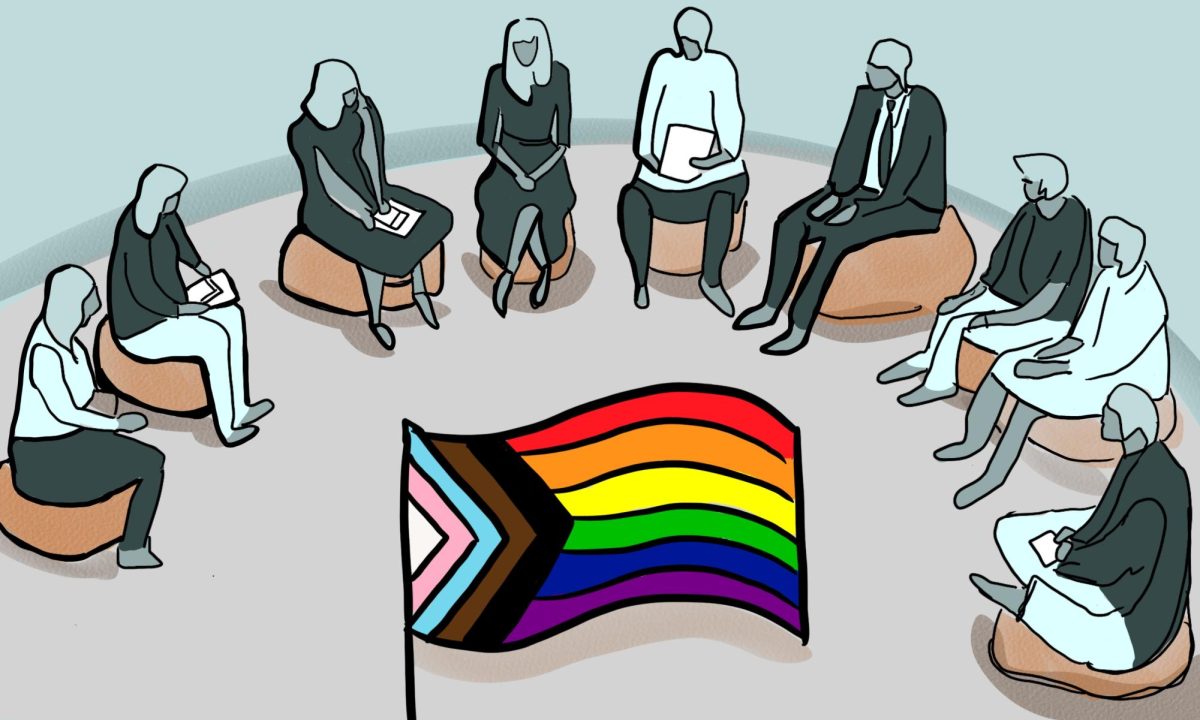When Cassie Petoskey had her first child, she decided to practice gender-creative parenting, raising her child without gendered roles, stereotypes or pronouns.
However, Petoskey, who serves as Northwestern’s director of alumni engagement, was the only one of their friends practicing gender-creative parenting. In her search for a space to discuss her questions about gender, she came across a flyer for a queer parenting support group for NU community members.
“I’m really glad that I did take that first step to go to meetings because otherwise, I don’t really have a group to talk about these types of questions,” Petoskey said. “And how cool is it that it’s at the place where I work?”
Since September, the University’s Women’s Center has been hosting monthly informal gatherings to discuss queer parenting. Members include parents of LGBTQ+ children, parents who identify as LGBTQ+ and parents looking to create an affirming environment for their children.
The meetings are organized by Sarah Brown, the director of the Women’s Center, and Carrie Cox-Wachter, the director of the NU Center for Awareness, Response and Education.
“We both have kids, and we got to talking about the fact that we wish we had another forum for issues around sexuality and gender and upbringing because being open about those kinds of topics isn’t quite mainstream yet,” Brown said.
Currently, the members of the group are all NU staff and faculty members, though it is also open to graduate and undergraduate students.
“It’s a very generous community of people,” Brown said. “If somebody’s like, ‘My kid just came out to me,’ and there’s also queer folks in the room, they can be like, ‘This is what this was like for me.’”
Stephanie Kulke, the fine/performing arts and social sciences editor of NU Global Marketing and Communications, said she joined the group to learn how to best support her child, who came out as non-binary when they were 16.
Kulke said she learned about a variety of non-traditional family structures and parenting methods from other members of the group.
“It was so expansive for me,” she said. “As a parent, it makes me realize there are so many more options for my child.”
Because meetings are held in an academic setting, Petoskey said discussion topics can range from theoretical questions about the definition of gender to practical ones about how to help children when they are questioning their identities or experiencing bullying.
Occasionally, discussions will center around a topic that arose organically during a previous meeting. After members mentioned a lack of literature for talking to kids about sexuality and gender identity, Brown said she brought children’s books on the topic to the next meeting.
“But mostly, we just kind of meet,” Brown said. “The meetings that have been our best are where someone has taken the floor because something has happened with their kid, where they’re really feeling like they need some support and guidance.”
Brown said the group provides a space for parents to speak and learn about LGBTQ+ issues and experiences so their children don’t have to do the work of educating their parents about their identities.
“I often think that it’s doing you harm to be the one who has to explain your identity to a person in your life,” she said.
Outside of monthly meetings, members also communicate regularly on Microsoft Teams about day-to-day issues.
Kulke said she feels more comfortable talking to her child and asking them questions about their gender identity because she has a group she can consult.
“I don’t want my child to do the heavy work with me,” she said. “I want to support my child.”
Email: joyceli2025@u.northwestern.edu
X: @joyycee_li
Related Stories:
— For LGBTQ students, living at home brings its own set of challenges






